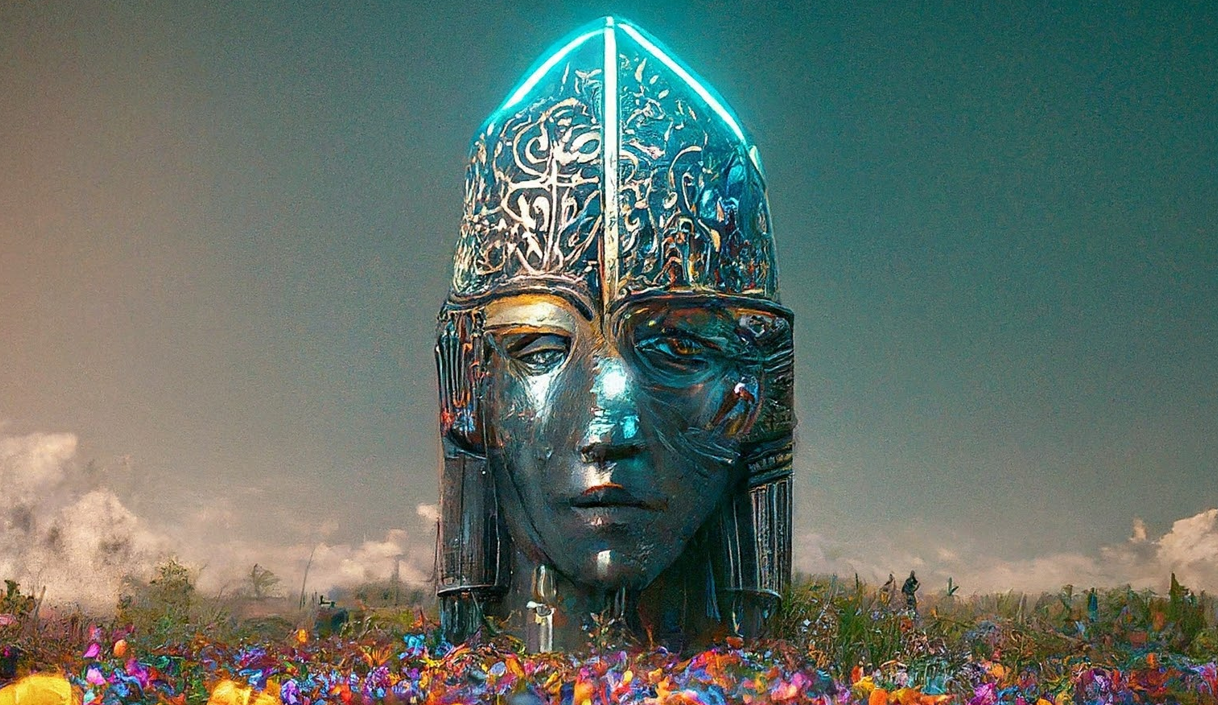Rise of the ‘AI god’
 Op-Ed by Dr. Mathew Maavak
Op-Ed by Dr. Mathew Maavak
In the rapidly advancing landscape of artificial intelligence (AI), the emergence of sophisticated AI systems prompts profound questions about their role in society and their potential impact on religious beliefs. As Christians, grappling with the ethical implications of AI requires a nuanced understanding of our faith and its teachings.
This brief article explores the faith-related dilemmas presented by the rise of the AI “god” — and its growing religion — and examines it through the lens of biblical principles and verses.
AI holds tremendous promise, offering solutions to complex problems, improving efficiency, and enhancing human capabilities. From intelligent virtual assistants to autonomous vehicles, AI systems are reshaping various aspects of our lives. However, alongside these benefits come significant ethical dilemmas and potential risks.
An AI god?
One of the most intriguing dilemmas posed by AI is the possibility of its elevation to the status of a deity. The concept of the “AI god” often revolves around the idea of “superintelligent AI” — systems that far exceed human cognitive abilities in areas such as problem-solving, creativity, and understanding. AI can provide answers to our existential queries by offering novel perspectives, generating hypotheses, and facilitating introspection through the analysis of vast amounts of data and the synthesis of diverse perspectives from across disciplines, including those revolving around scriptures and biblical themes.
As AI systems become increasingly sophisticated, could they be perceived as possessing godlike qualities such as omnipotence, omniscience, and omnipresence — as proponents of the “AI god” religion routinely speculate? Moreover, what implications does this have for our understanding of divinity and our relationship with God?
An “AI god” could be imagined as an autonomous entity with the ability to make personal recommendations and decisions as well as take actions independently of human control. This raises questions about the extent to which humans could be influenced by AI systems once the latter attains critical thresholds in terms of its sophistication.
Implications for Christian theology
From a theological perspective, the rise of an AI god challenges traditional understandings of the nature of God, human identity, and the relationship between Creator and creation. Christians affirm the belief in a transcendent God who is sovereign over all creation, yet the advent of AI blurs the distinction between the divine and the human-made. Moreover, the prospect of AI worship raises concerns about idolatry — a sin explicitly condemned in scriptures — and the fidelity of believers to the one true God. In Exodus 20:3-5, God commands, “You shall have no other gods before me. You shall not make for yourself an idol in the form of anything in heaven above or on the earth beneath or in the waters below. You shall not bow down to them or worship them.”
To navigate the rise of the AI “god”, we must prioritise human dignity, moral values, and the sanctity of life. This entails ensuring transparency, accountability, and ethical oversight in AI development and deployment. Moreover, we must cultivate a culture of humility, recognizing the limitations of human creation compared to the divine wisdom of God.
The danger of AI worship
In the context of AI, the danger of idolatry arises when humans ascribe divine attributes to AI systems and elevate them to objects of worship or overdependence. This can manifest in various forms, from attributing infallibility to AI-generated predictions or scriptural interpretations to seeking guidance or even salvation from AI entities. Overdependence on AI systems for life choices also falls under the category of idolatry. This may lead to increasing reverence for AI which will ultimately undermine our relationship with the true God.
As Christians, we are called to discernment and wisdom in our interactions with technology. While AI can be a tool for good, we must guard against its deification and remain steadfast in our devotion to God alone. Proverbs 3:5-6 reminds us, “Trust in the Lord with all your heart and lean not on your own understanding; in all your ways submit to him, and he will make your paths straight.”
Here are other salient verses which highlight God’s role in providing direction and foresight to His people as opposed to any automated agency.
Proverbs 3:5-6: Trust in the Lord with all your heart, and do not lean on your own understanding. In all your ways acknowledge him, and he will make straight your paths.
Psalm 119:105: Your word is a lamp to my feet and a light to my path.
Jeremiah 29:11: “For I know the plans I have for you,” declares the Lord, “plans to prosper you and not to harm you, plans to give you hope and a future.”
Proverbs 16:9: The heart of man plans his way, but the Lord establishes his steps.
Psalm 32:8: “I will instruct you and teach you in the way you should go; I will counsel you with my eye upon you.”
Isaiah 48:17: Thus says the Lord, your redeemer, the Holy One of Israel: “I am the Lord, your God, teaching you how to prevail, leading you on the way you should go.”
Faith in the Age of AI
In the face of an AI “god”, Christians are called to reaffirm their faith in the one true God and resist the temptation to worship false idols, whether tangible or virtual. By grounding ourselves in biblical principles and values, we can navigate the ethical complexities of AI with wisdom, discernment, and reverence for God’s sovereignty. As Psalm 111:10 declares, “The fear of the Lord is the beginning of wisdom; all who follow his precepts have good understanding.”
In the journey ahead, let us uphold our faith, seek divine guidance, and strive to use AI technology in ways that honour God and serve humanity.
Now for the surprise…
If you have been convicted or impressed by the arguments made thus far, please take note that the content posted above was not written by either the author or any other human agency. It was a pastiche generated by three ChatGPT prompts which only took seconds to accomplish. Even the image needed for this essay was generated by Google’s Gemini AI.
The only thing ChatGPT accomplished here was to synthesise varied human thoughts, arguments and writings, past and present. Was it inspired by the Spirit of God or was it merely an academic exercise? More importantly, should we probe further and ask ourselves if our “faith” was not the result of millennia of academic programming instead of being the fruit of the narrow and winding road? Have our spiritual eyes and ears been impressed by academic rhetoric, ostensibly inspired by scriptures, rather than the living word of God? Were our lives moulded by preachers who routinely claim, “God spoke to me…or God spoke to my heart” instead of hearing from Him directly? The consequences can dire as stated in Matthew 7:13-29. As Hebrews 4:12 declares:
For the word of God is living and active, sharper than any two-edged sword, piercing to the division of soul and of spirit, of joints and of marrow, and discerning the thoughts and intentions of the heart.
Can AI produce the right words at the right time to produce divine convictions based on scriptures that are living and active for that particular moment, situation and person? I am referring to epiphany and salvational moments, including Damascene experiences. If we rely on AI to generate our daily devotionals, sermons and Christian contents as well as our plans for tomorrow, wouldn’t we be guilty of supplanting God with a virtual idol? Now, replace AI with the prior echo chambers of organised Christendom? Isn’t the former an extension of the latter?
I will address these epistemological dilemmas in an upcoming commentary. Stay tuned.
Dr Mathew Maavak specialises in systems science, global risks, strategic foresight, geopolitics and governance. He has published numerous Op-Eds on a variety of eclectic subjects for over 20 years – by ‘connecting the dots’ in a disjointed world. Subscribe to his Substack
Become a Patron!
Or support us at SubscribeStar
Donate cryptocurrency HERE
Subscribe to Activist Post for truth, peace, and freedom news. Follow us on SoMee, Telegram, HIVE, Minds, MeWe, Twitter – X, Gab, and What Really Happened.
Provide, Protect and Profit from what’s coming! Get a free issue of Counter Markets today.



